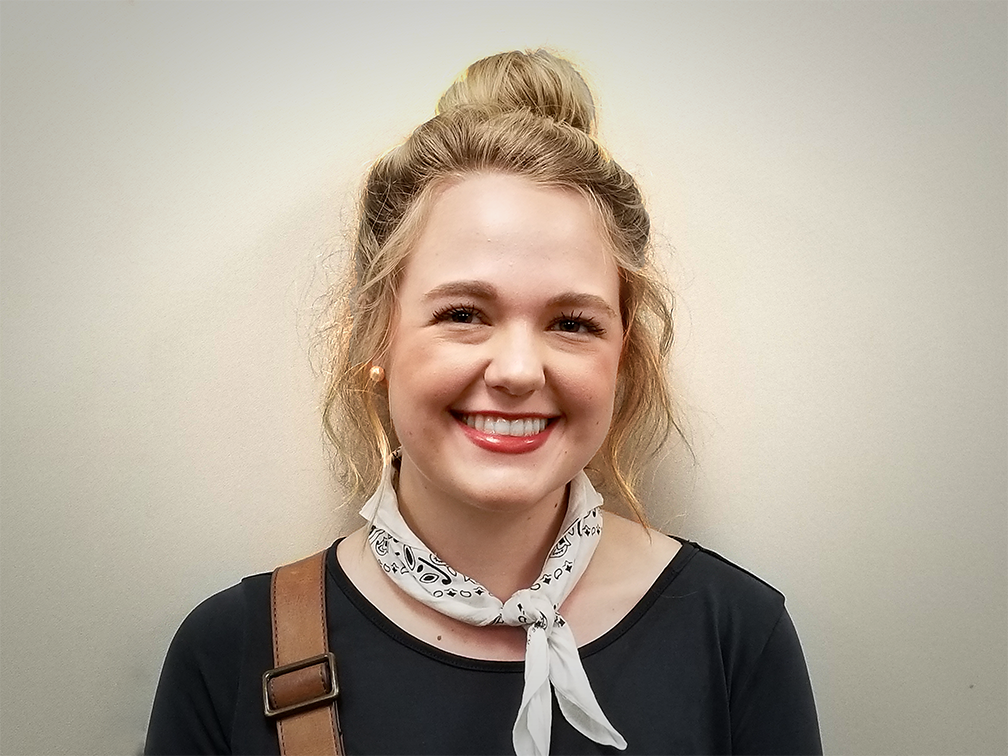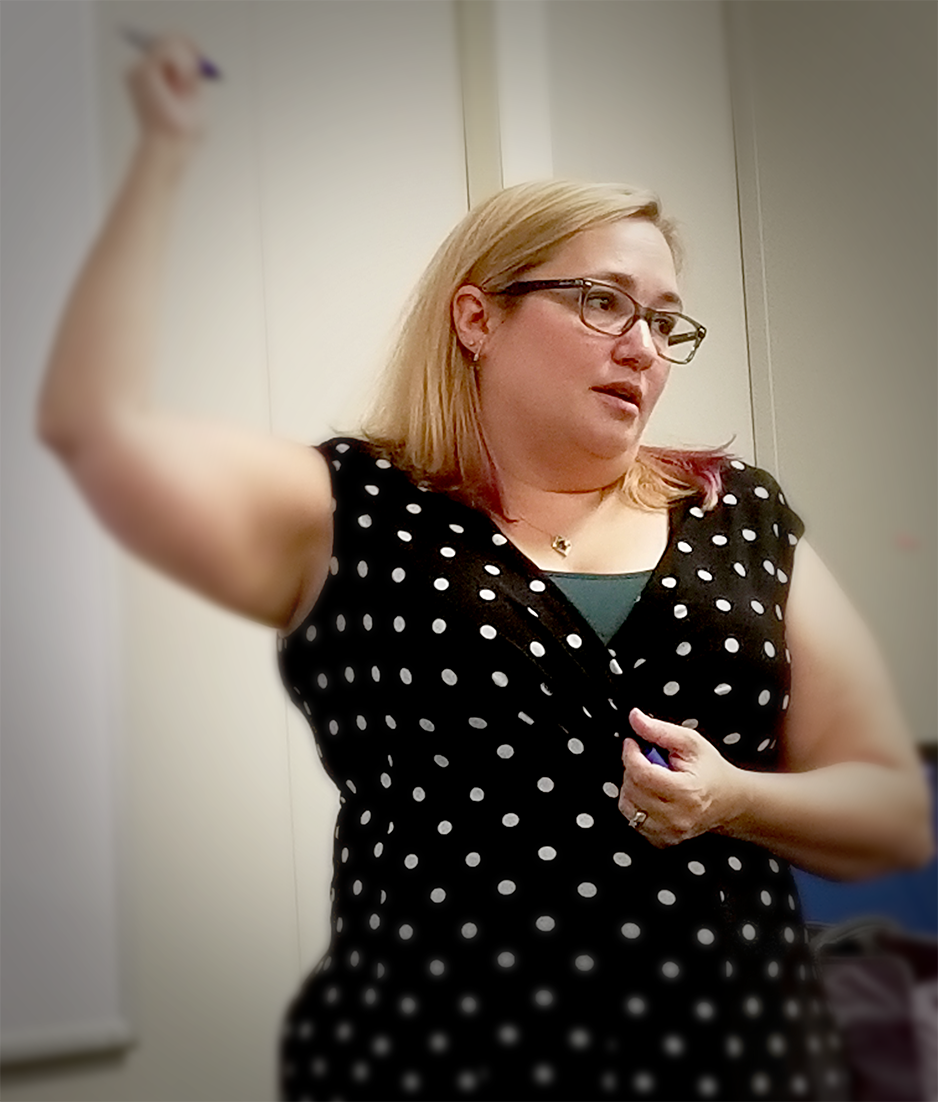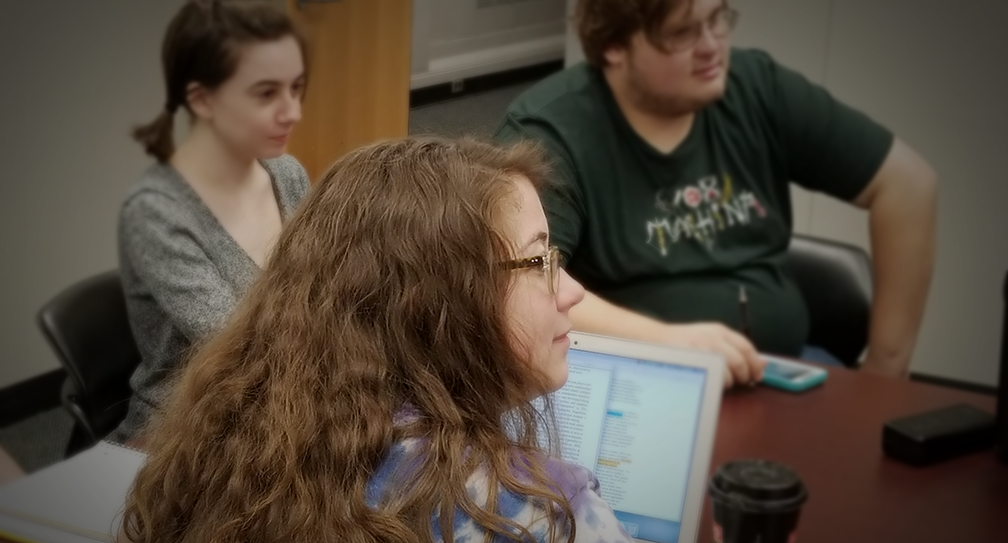
UTC’s English undergraduates have three options to complete the Senior Capstone graduation requirement: the Senior Seminar class, a Senior Thesis, or an internship. Each has its own merits and may be more appropriate depending on which concentration a prospective senior may take. Savannah May, a current senior, is currently taking the Senior Seminar class with Dr. Jenn Stewart. Below is an interview conducted over email in which I asked her some questions about her experience as an English major and what exactly she’s doing in the Senior Seminar class.
.
.
What made you decide to major in English?
I have loved reading and writing for as long as I can remember… that sounds cliché, I know.
My love for writing stemmed from my love for reading. In third grade, I read Alice’s Adventures in Wonderland and Through the Looking Glass. I remember seeing the word “beseech” in the “Walrus and the Carpenter” poem that appears in Through the Looking Glass, and I made a point to use it in anything I wrote for school for the rest of the year. By fourth grade, I had written a poem about weasels that was published by the Young Southern Writers Journal through UTC, and by fifth grade, I was reading David Copperfield.
I think I have always been an English major, just without the official title; I have always wanted to read, write, and learn. I really discovered my passion for the field in high school, however, as I began to experiment in Honors and AP classes with different genres and writing styles. I did my first rhetorical analysis paper in eleventh grade. I remember my classmates reacting to that assignment as if they had been asked to read Heidegger’s Being and Time. I, however, loved it. Rhetoric was a new side of English to me. It was like the science behind the art of English studies.
When I discovered rhetoric, I learned to read texts differently. I developed heightened analytical skills and learned to be more intentional in my speech and writing. I felt, and still do, that having a firm understanding of rhetoric allows one to excel in any social, academic, political, etc. discourse. During my senior year, I researched UTC’s departments and programs, and when I saw that the English Department had a Rhetoric and Professional Writing track, I was in.

Why did you decide to take the Senior Seminar class as opposed to one of the other options you had for the Capstone?
The Senior Seminar was the only practical option for me, as I feel it is for many students. I have a full-time job, which is non-negotiable, because I pay my own rent, car payment, etc. I would have loved to have done an internship, but even the paid ones would not cover my monthly bills. I felt like I would not have time to do the other option—a departmental thesis—due to my work schedule and my class schedule (which has always been packed tight because I am also majoring in Spanish). So, a Senior Seminar class was simply the best fit for me..
.
I am aware that the course description on the catalog states that the class “emphasizes application and synthesis of student learning in the major as it focuses on themes/topics in literature, theory, creative writing, and/or rhetoric and composition.” Can you elaborate on this?
In fewer words, we are doing things. What I mean by that is we aren’t just discussing literature, writing, and theory, but rather we are doing things with the knowledge we have acquired during our time as English majors. We are doing hands-on collaborative projects that require research, technological skills, and *gasp* group work. This seminar is preparing English majors to apply the analytical, communication, and writing skills learned in our other English classes to real-life jobs. We are studying the history of the major, analyzing its identity, and learning how to make our skill sets as English majors marketable.

The course is subtitled “Deconstructing the English Major.” What exactly does this mean? What are some of the things your class has discussed together up to this point?
Well, we are literally deconstructing the English major. We are analyzing its beginnings, growth, and future. We are analyzing its identity and our own. We are analyzing what the major has taught us and how that knowledge is applied to every facet of post-graduate life.
We have discussed information coding in class, which we then applied to a collaborative project. We used our coding skills to analyze Buzzfeed articles about English majors. We then compiled our findings, narrowed them down, and formatted them into a rather lengthy memo that discusses the perceptions and stereotypes tied to being an English major.
We then discussed Halvorsen and Sarangi’s study about activity and discourse roles to analyze how people collaborate and behave in a professional group setting. We used this information and other team roles studies to reflect upon our own activity and discourse roles in group settings.
We have read McComiskey’s “English Studies: An introduction to the Discipline(s),” which offers a detailed history concerning the growth and change of the English major, and we are now in the process of doing a collaborative meta-analysis that will examine how English majors or departments compare and contrast across the country.
We will soon be conducting in-depth interviews with a former English major. We will be interviewing them about their careers and how their education in English prepared them for their current job. We are only interviewing English majors who are not teachers, because the goal of the project is to analyze how the English major instills one with communication and writing skills that prepare one for a wide variety of careers.
Later in the semester, we will be doing a “Situatedness Autoethnography” that will analyze our strengths, weaknesses, and aptitude, and will reflect on past work. By the end of the course, we will have also created professional online portfolios to be used when entering the job market.
Leave a Reply